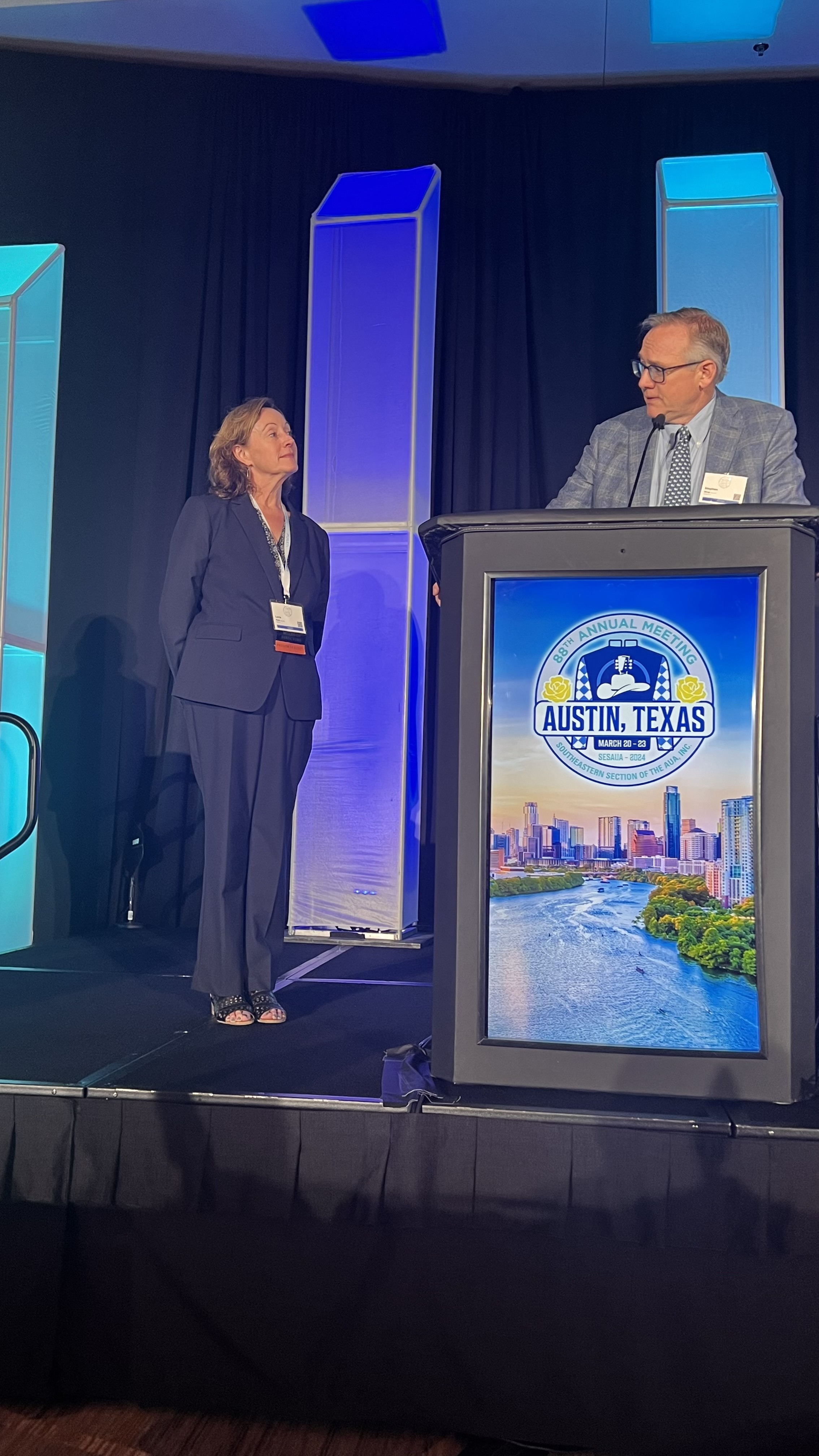Fleck inaugurated as the first female president of the American Urological Association's Southeastern Section
The Southeastern Section is the largest of the association’s eight regions, comprising almost 2,100 urologists practicing in nine Southeastern states, Panama, Puerto Rico, and the U.S. Virgin Islands.
Lorie Fleck, M.D., FACS, FPMRS, a board-certified urologist at USA Health University Urology, continues to blaze a trail for women in the field of urology. She recently was inaugurated as the first female president of the Southeastern Section of the American Urological Association at the group’s annual meeting in Austin, Texas.

“It’s a great honor. It’s an overwhelming responsibility, but I believe I am up to the task,” said Fleck, who is an associate professor of urology and an associate professor of obstetrics and gynecology at the Frederick P. Whiddon College of Medicine. She also is director of the urology residency program at USA Health. “I’m excited to be the first female president of the section.”
The Southeastern Section is the largest of the association’s eight geographic regions, comprising almost 2,100 urologists practicing in nine Southeastern states, Panama, Puerto Rico, and the U.S. Virgin Islands.
Urology is a field long dominated by male physicians, but that trend is changing. In 2014, women accounted for 7.7% of all practicing urologists in the U.S., but by 2023, the percentage had grown to 11.6%. As more women enter the field, they also are moving into leadership positions.
Fleck said she looks forward to her new role. As president, she will attend state urology meetings throughout the Southeastern Section and update members on the section’s efforts to improve patient care and physician outreach. In addition, she is responsible for organizing the section’s next annual meeting, scheduled for March 2025 in Nashville, Tennessee.
In 1992, Fleck became the first female urology resident at the Medical College of Georgia, where she also earned her medical degree. She said she was drawn to urology because of the practice’s wide range of opportunities — a blend of patient visits, office procedures, and surgeries.
In 2014, she became one of the first two urologists in the Mobile area to earn subspecialty board certification in female pelvic medicine and reconstructive surgery.
“There have been those who felt that urology was a ‘man’s world,’ and that I would never have many patients or be able to build a successful practice,” she said during Women’s History Month in 2023. “But there were many others who have served as mentors and encouraged me throughout the years. I have found that when you give your best, your time, your ability, and try to remain kind and caring, then anyone can build a successful practice, even if you are in the minority.”
Fleck says one of her favorite roles is mentoring medical students and residents.
Kimberly Waggener, a fourth-year medical student at the Whiddon College of Medicine, recently cited Fleck’s influence in her choice to match in urology. “When I first shadowed Dr. Fleck, I fell completely in love with the specialty,” said Waggener, who will train in urology at Wake Forest University in Winston-Salem, North Carolina, after graduation. “I’m incredibly grateful to join the small percentage of women practicing urology.”





